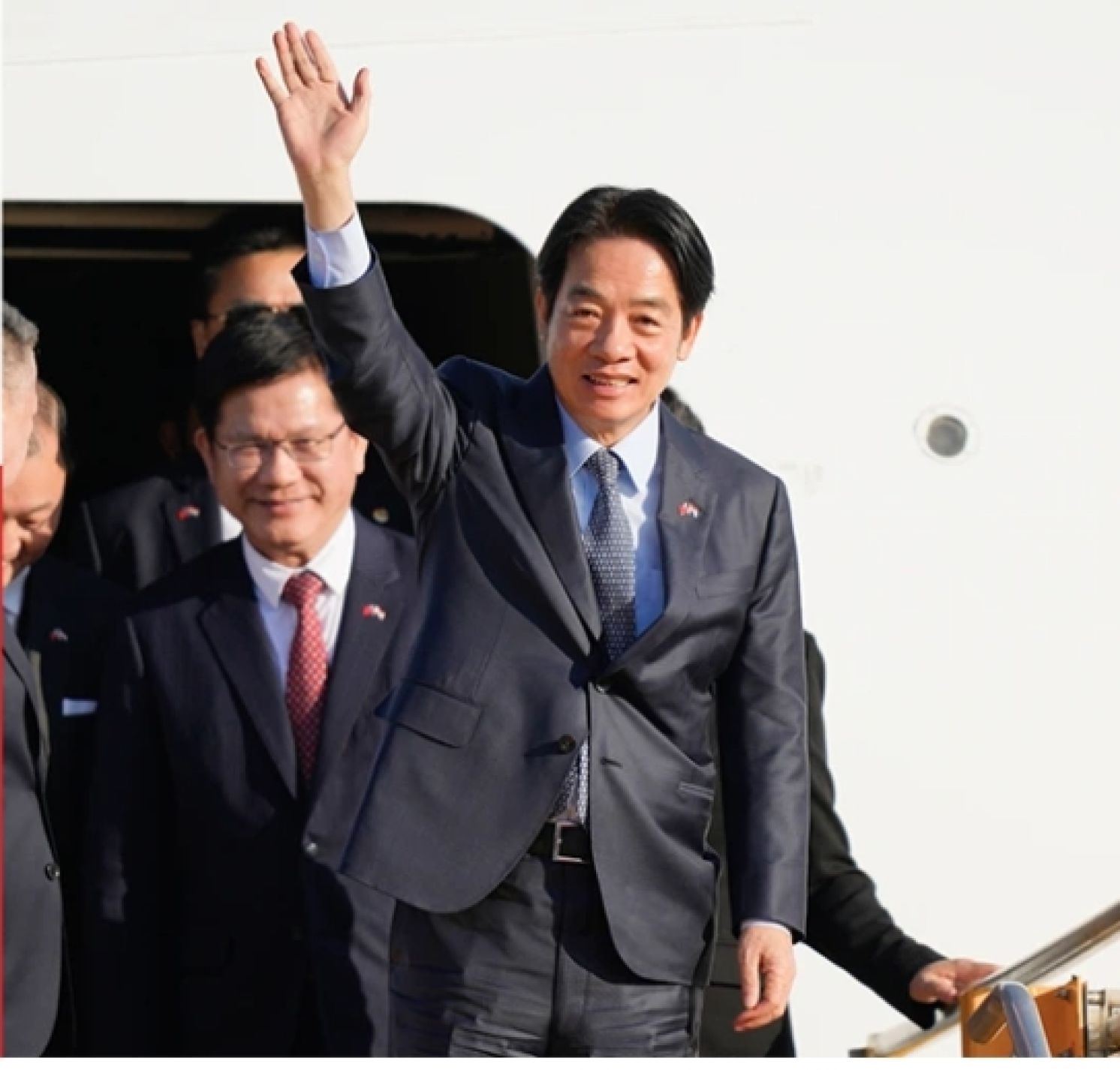
DPP Administration's U.S. Diplomacy Focuses on Theatrics Over Substance, Lacks Strategic Depth
By Dennis Lu, The Storm Media Opinion, October 8, 2025
Washington is always lively in the fall, with think tank events taking place one after another. Yet the visit of newly appointed Deputy Secretary-General Vincent Chao of the National Security Council (NSC) has still become a focal point. According to media reports, during meetings with think tank experts, Trump administration officials, and Congressional aides in Washington, Mr. Chao emphasized that Taiwan will continue increasing its defense spending and investing in asymmetric capabilities. This statement echoed Washington’s expectations that “Taiwan should strengthen its self-defense capabilities” and demonstrated the determination of the administration of President Lai Ching-te to maintain a hardline stance. However, when viewed in the broader context of U.S.-China competition and cross-strait dynamics, it reveals that Taiwan’s diplomatic strategy is becoming increasingly superficial and misaligned.
There is currently a wide-ranging debate in Washington on Taiwan. The Wall Street Journal recently reported that Beijing is demanding that the Trump administration explicitly “oppose Taiwan independence” instead of maintaining the previous ambiguous stance of “not supporting Taiwan independence.” If this wording does indeed change, then it would signal a fundamental shift in U.S. diplomatic policy. At the same time, the United States and China are entering a new round of negotiations on trade and supply chains, with the United States Department of Commerce and Department of the Treasury putting pressure on Taiwan to split semiconductor production capacity evenly with the United States. As Washington’s focus has already shifted from security to economics—and ensuring the success of the upcoming summit between U.S. President Donald Trump and Chinese President Xi Jinping has become a top priority—Taiwanese officials arriving in Washington to discuss defense spending may be perceived as “political noise” interfering with interactions between Mr. Trump and Mr. Xi.
In addition to emphasizing increased defense spending, media reports say another mission of the visit may be to secure a U.S. “transit stop” for President Lai Ching-te during his upcoming trip to Latin America. This suggests the ruling party continues to treat “transit diplomacy” as a domestic public relations tool to showcase strong U.S.-Taiwan ties. But such an approach risks turning diplomacy into an expensive political show, creating only the illusion of a solid bilateral relationship.
Mr. Chao’s visit also exposes a structural problem in the government’s diplomatic division of labor. With the NSC, Ministry of Foreign Affairs, and Executive Yuan each acting on their own, there is no integrated U.S. strategy. As a result, while the government attempts to signal that ties with Republicans are not distant, U.S. Secretary of Commerce Howard Lutnick bluntly stated during his recent visit that talks with Taiwan’s delegation lasted “only a few minutes.” This stands in stark contrast to domestic media portrayals claiming Taiwan’s delegation left the U.S. side feeling “hard to handle.” Which version is true? If Taiwan’s national security system really has channels to Republican leadership, then why has it failed to secure more substantive dialogue for Taiwan? When political maneuvering replaces professional diplomacy, the result is internal finger-pointing and external loss of trust.
The Stimson Center recently published a report on U.S.-China-Taiwan relations, offering another perspective on Taiwan’s position. The report bluntly states that the U.S. defense establishment has long exaggerated the Taiwan Strait crisis to justify massive defense budgets—but that does not mean the United States is willing to send troops to defend Taiwan. The report also emphasizes that Mr. Trump’s military doctrine is to “protect America, not waste power on distant battlefields.”
The report further warns that Beijing’s strategy toward Taiwan has already shifted to non-military means: economic pressure, information warfare, seizure of outlying islands, and political infiltration are all possible tactics aimed at eroding Taiwan’s social resilience and unity, achieving the goal of “winning without fighting.” This means the real danger lies not in war itself, but in the breakdown of social trust and political consensus. When the government only highlights the favorable aspects of U.S.-Taiwan relations while covering up unfavorable realities, public trust in the government will slowly erode. No number of arms purchases or allied promises can build a real security net under such circumstances.
Increasing defense spending is necessary, but Taiwan must also face the question honestly: Are we boosting our defense budget to protect ourselves—or to please the United States? If rising military expenditures are accompanied by ceding industrial advantages and losing economic leverage under American pressure, then both security and autonomy will be eroded.
More critically, the overall national power gap between the two sides of the Taiwan Strait is rapidly widening. Beijing’s attitude toward Taiwan has shifted from “concern and engagement” to “indifference and disdain.” This is not only a result of the ruling party’s hardline policy toward China, but also reflects Taiwan’s declining value as a strategic asset in Beijing’s global competition. If Taiwan cannot demonstrate its ability to contribute to regional stability, then Beijing’s “wait-and-see” approach may eventually turn into “settling accounts.”
While the NSC’s mission to Washington appears to be a proactive effort to manage U.S.-Taiwan relations, it in fact reveals a lack of strategic depth in Taiwan’s diplomacy. If showing goodwill to Washington and seeking transit stops is merely about making gestures or appeasing others, without understanding that the core goal of U.S.-Taiwan relations should be safeguarding Taiwan’s interests, not pleasing the United States, then such diplomacy will only make Taiwan more passive.
The author is associate professor in the Department of Political Science at Sam Houston University.